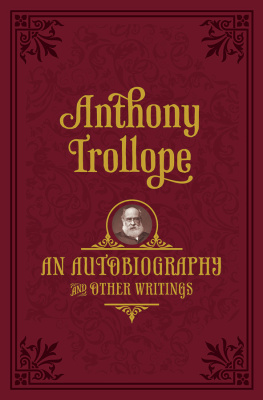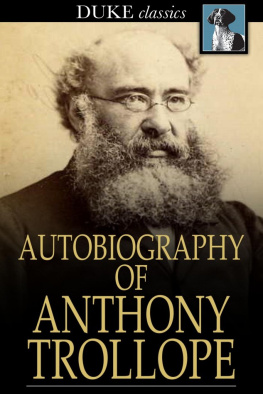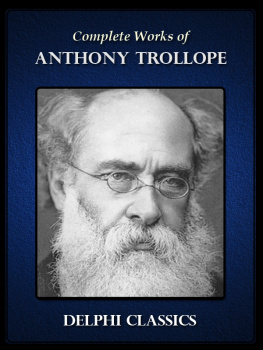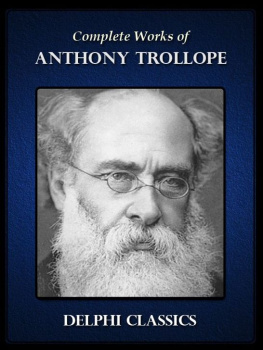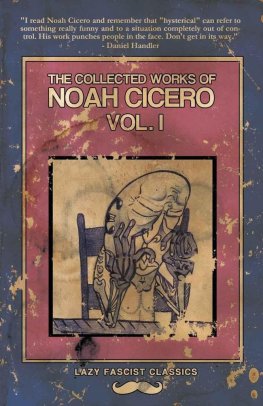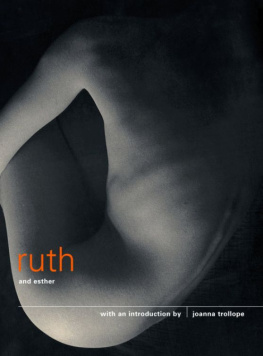LIFE OF CICERO.
Chapter I.
INTRODUCTION.
I am conscious of a certain audacity in thus attempting to give a further life of Cicero which I feel I may probably fail in justifying by any new information; and on this account the enterprise, though it has been long considered, has been postponed, so that it may be left for those who come after me to burn or publish, as they may think proper; or, should it appear during my life, I may have become callous, through age, to criticism.
The project of my work was anterior to the life by Mr. Forsyth, and was first suggested to me as I was reviewing the earlier volumes of Dean Merivale's History of the Romans under the Empire. In an article on the Dean's work, prepared for one of the magazines of the day, I inserted an apology for the character of Cicero, which was found to be too long as an episode, and was discarded by me, not without regret. From that time the subject has grown in my estimation till it has reached its present dimensions.
I may say with truth that my book has sprung from love of the man, and from a heartfelt admiration of his virtues and his conduct, as well as of his gifts. I must acknowledge that in discussing his character with men of letters, as I have been prone to do, I have found none quite to agree with me. His intellect they have admitted, and his industry; but his patriotism they have doubted, his sincerity they have disputed, and his courage they have denied. It might have become me to have been silenced by their verdict; but I have rather been instigated to appeal to the public, and to ask them to agree with me against my friends. It is not only that Cicero has touched all matters of interest to men, and has given a new grace to all that he has touched; that as an orator, a rhetorician, an essayist, and a correspondent he was supreme; that as a statesman he was honest, as an advocate fearless, and as a governor pure; that he was a man whose intellectual part always dominated that of the body; that in taste he was excellent, in thought both correct and enterprising, and that in language he was perfect. All this has been already so said of him by other biographers. Plutarch, who is as familiar to us as though he had been English, and Middleton, who thoroughly loved his subject, and latterly Mr. Forsyth, who has struggled to be honest to him, might have sufficed as telling us so much as that. But there was a humanity in Cicero, a something almost of Christianity, a stepping forward out of the dead intellectualities of Roman life into moral perceptions, into natural affections, into domesticity, philanthropy, and conscious discharge of duty, which do not seem to have been as yet fully appreciated. To have loved his neighbor as himself before the teaching of Christ was much for a man to achieve; and that he did this is what I claim for Cicero, and hope to bring home to the minds of those who can find time for reading yet another added to the constantly increasing volumes about Roman times.
It has been the habit of some latter writers, who have left to Cicero his literary honors, to rob him of those which had been accorded to him as a politician. Macaulay, expressing his surprise at the fecundity of Cicero, and then passing on to the praise of the Philippics as senatorial speeches, says of him that he seems to have been at the head of the "minds of the second order." We cannot judge of the classification without knowing how many of the great men of the world are to be included in the first rank. But Macaulay probably intended to express an opinion that Cicero was inferior because he himself had never dominated others as Marius had done, and Sylla, and Pompey, and Csar, and Augustus. But what if Cicero was ambitious for the good of others, while these men had desired power only for themselves?
Dean Merivale says that Cicero was "discreet and decorous," as with a similar sneer another clergyman, Sydney Smith, ridiculed a Tory prime-minister because he was true to his wife. There is nothing so open to the bitterness of a little joke as those humble virtues by which no glitter can be gained, but only the happiness of many preserved. And the Dean declares that Cicero himself was not, except once or twice, and for a "moment only, a real power in the State." Men who usurped authority, such as those I have named, were the "real powers," and it was in opposition to such usurpation that Cicero was always urgent. Mr. Forsyth, who, as I have said, strives to be impartial, tells us that "the chief fault of Cicero's moral character was a want of sincerity." Absence of sincerity there was not. Deficiency of sincerity there was. Who among men has been free from such blame since history and the lives of men were first written? It will be my object to show that though less than godlike in that gift, by comparison with other men around him he was sincere, as he was also self-denying; which, if the two virtues be well examined, will indicate the same phase of character.
But of all modern writers Mr. Froude has been the hardest to Cicero. His sketch of the life of Csar is one prolonged censure on that of Cicero. Our historian, with all that glory of language for which he is so remarkable, has covered the poor orator with obloquy. There is no period in Cicero's life so touching, I think, as that during which he was hesitating whether, in the service of the Republic, it did or did not behoove him to join Pompey before the battle of Pharsalia. At this time he wrote to his friend Atticus various letters full of agonizing doubts as to what was demanded from him by his duty to his country, by his friendship for Pompey, by loyalty to his party, and by his own dignity. As to a passage in one of those, Mr. Froude says "that Cicero had lately spoken of Csar's continuance in life as a disgrace to the State." "It has been seen also that he had long thought of assassination as the readiest means of ending it," So much is an intended translation. Then Mr. Froude tells us how Cicero had "hailed Csar's eventual murder with rapture;" and goes on to say, "We read the words with sorrow and yet with pity." But Cicero had never dreamed of Csar's murder. The words of the passage are as follows: "Hunc primum mortalem esse, deinde etiam multis modis extingui posse cogitabam." "I bethought myself in the first place that this man was mortal, and then that there were a hundred ways in which he might be put on one side." All the latter authorities have, I believe, supposed the "hunc" or "this man" to be Pompey. I should say that this was proved by the gist of the whole letterone of the most interesting that was ever written, as telling the workings of a great man's mind at a peculiar crisis of his lifedid I not know that former learned editors have supposed Csar to have been meant. But whether Csar or Pompey, there is nothing in it to do with murder. It is a questionCicero is saying to his friendof the stability of the Republic. When a matter so great is considered, how is a man to trouble himself as to an individual who may die any day, or cease from any accident to be of weight? Cicero was speaking of the effect of this or that step on his own part. Am I, he says, for the sake of Pompey to bring down hordes of barbarians on my own country, sacrificing the Republic for the sake of a friend who is here to-day and may be gone to-morrow? Or for the sake of an enemy, if the reader thinks that the "hunc" refers to Csar. The argument is the same. Am I to consider an individual when the Republic is at stake? Mr. Froude tells us that he reads "the words with sorrow and yet with pity." So would every one, I think, sympathizing with the patriot's doubts as to his leader, as to his party, and as to his country. Mr. Froude does so because he gathers from them that Cicero is premeditating the murder of Csar!



